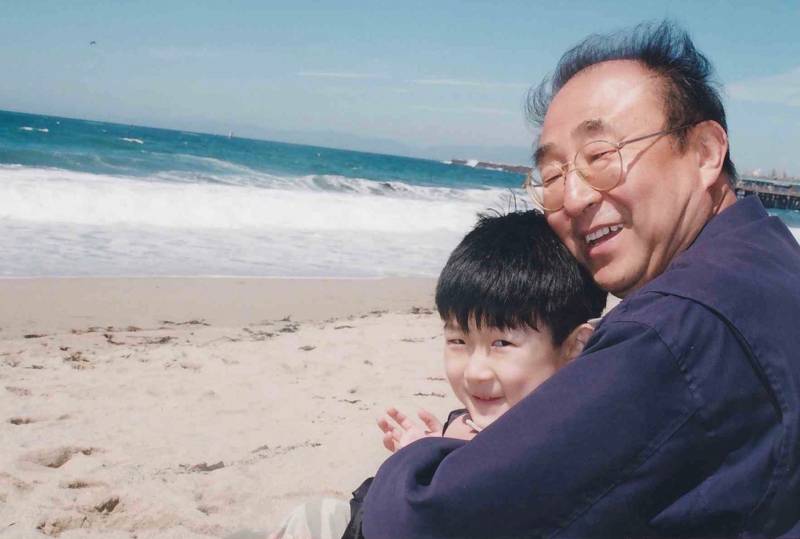Family Is Just Not Replaceable': How COVID-19 Ravaged One Family in LA's Koreatown
Twenty-two-year-old Hannah Haein Kim's grandmother moved into her family's two-bedroom apartment in LA's Koreatown recently, to try to keep her safe from COVID-19's spread into nursing homes. Her grandmother has dementia and cannot walk or speak. The family cared for her, despite Hannah's father losing his income during shelter-in-place. But then, Hannah’s grandmother got sick with COVID, and so did Hannah's entire family. Hannah chronicles their experience over the last few weeks in a series of essays and audio diary entries.
California Sends Dozens of Healthcare Workers to Navajo Nation
California health care workers are not only working the front lines here in our own state, but some are travelling to places where the pandemic is much worse. The Navajo Nation has the highest per-capita rate of COVID-19 cases in the country. The area extends into Arizona, New Mexico, and Utah, and the illness is spreading rapidly. It’s a community where family members of different generations often live together, and a third of homes don’t have running water or electricity. Dr. Aylin Ulku of UCSF is recording her experience as she takes care of patients there. KQED Science reporter Lesley McClurg brings us Dr. Ulku’s audio diary.
Creative Passions Help a Frontline Healthcare Worker Stay Grounded
Frontline healthcare workers are at high risk of burning out from the stress of taking care of patients sick with COVID-19. Ameneh Moghaddam is a family nurse practitioner at the Contra Costa Regional Medical Center, and she’s figured out some creative ways to try to nurture herself and the people around her. KQED Arts and Culture reporter Chloe Veltman brings us her story.
‘Somebody Had to Do It’: Motorcyclists Deliver Lifesaving Supplies to the Bay Area
One of the brighter spots of this pandemic is seeing how people are coming together to help others. In March, the San Francisco-based motorcycle collective Dames Don’t Care started a motorcycle delivery program so riders could volunteer to bring much needed medical supplies to hospitals and clinics all over the Bay Area. They call this new effort Dames Do Care. KQED’s Bianca Taylor spoke with its founder, Lucy Carrera.
No Prom, No Grad Night: The Class of 2020 Goes Out With a Fizzle
Graduating high schools seniors from the Central Valley city of Merced have produced a new podcast called COVID-18. It explores what it’s like to step into adulthood – and turn 18 – as the world is wracked by a pandemic. The podcast follows several teens as they navigate difficult living situations, college acceptance, trying to do homework online, and coming to terms with missing out on big milestones. Another project, called “Senior Year, Interrupted,” asked students to submit videos sharing their stories to KQED. We hear from students who are part of both projects.

